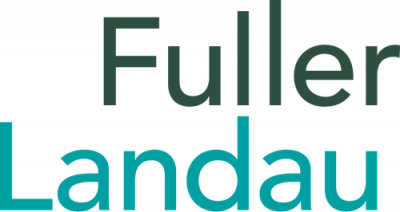Authors: Bruce Roher and Meghan Haley
On October 17, 2018, Canada became the first G7 country to legalize marijuana for recreational use. According to U.S. research firms, Arcview Market Research and BDS Analytics, global consumer spending on cannabis will triple from its current level to US $32 billion by 2022.
As beer, alcohol and tobacco sales volumes slow, companies within these industries have been actively acquiring stakes in, or partnering with, cannabis companies. Cannabis-infused food and drink products will be lawful in Canada no later than October 17, 2019, which is bound to further increase M&A activity.
In October 2017, Constellation Brands, a leading beverage alcohol company (best known for Corona beer and Robert Mondavi wine) acquired a 10% stake in Canopy Growth Corporation for $245 million. In August 2018, Constellation Brands increased its ownership interest in Canopy to 38% for $5 billion. There are clearly benefits to both companies.
Benefits to Constellation Brands:
- Strategic growth – the alcoholic beverage industry is mature, whereas the cannabis industry anticipates huge growth. Traditional beer brands have been relatively flat for several years and are under pressure from craft and high-end beer competitors. Vivien Azer, managing director and senior analyst research analyst specializing in the beverage, tobacco, and cannabis sectors with Cowen, wrote in an April 2018 note “Consumer survey work suggests [about] 80% of consumers reduce their alcohol consumption with cannabis in the mix.”
- Differentiation – Canadian legalization of marijuana drink products is expected in 2019.
Benefits to Canopy:
- Cash infusion – provides cash for strategic acquisitions and supply agreements.
- Cannabis-infused beverages – leverages Constellation Brand’s product design, manufacturing, marketing and distribution expertise, particularly as Canopy moves into the cannabis-infused beverages segment.
In December 2018, Altria Group, a tobacco manufacturer which has an ownership stake in Anheuser-Busch InBev NV (which in turn owns SABMiller), acquired a 45% interest in Cronos Group Inc., a cannabis grower in Toronto. The transaction price was $2.4 billion and included a warrant for an additional $1.4 billion, that if exercised, would result in Altria’s ownership interest increasing to 55%. Altria paid a 33% premium to Cronos Group’s November 30, 2018 closing price. Many Canadian beverage companies are developing cannabis-infused beverages by strategically creating joint ventures.
In August 2018, Molson Coors Canada and The Hydropothecary Corporation announced an agreement to create a joint venture focused on non-alcoholic, cannabis-infused beverages for the Canadian market. In Molson’s Q3 2018 conference call, Mark R. Hunter, President and CEO, Molson Coors, describes the potential size of the cannabis-infused beverage market:
“And clearly, there are lots of numbers which are being bandied around with regard to the potential size of the cannabis market in Canada. I think, if you take an average, then it suggests that this market may be somewhere between $7 billion and $10 billion in market value, with beverages between 20% and 30%. And that’s obviously non-alcoholic cannabis-infused beverages. Even if you take the low end of that estimate, then it suggests that the beverages segment could be circa $1.5 billion of value.”
Province Brands of Canada is a Toronto-based company which has created beer brewed from cannabis instead of barley. In November 2018, Province Brands announced that it has partnered with Lost Craft Beer, allowing Lost Craft Beer to license Province Brand’s patent-pending technologies to develop and brew non-alcoholic cannabis-brewed craft beer. Province Brands is currently constructing a 123,00 square foot manufacturing facility in Grimsby, Ontario.
In December 2018, the parent company of Labatt Breweries of Canada (Anheuser-Busch InBev), created a research joint venture with cannabis producer Tilray Inc. to study non-alcohol beverages containing CBD and THC. CBD is the non-psychoactive ingredient found in cannabis which is considered more of a wellness ingredient, whereas THC is the chemical that activates most of the psychological effects. It is expected that the joint venture will ultimately result in drinks to sell on the Canadian market.
Although public soft drink manufacturers have not yet entered the cannabis market, PepsiCo and Coca-Cola have stated that they are exploring this market. PepsiCo CFO Hugh Johnston told CNBC “I think we’ll look at it critically, but I’m not prepared to share any plans that we may have in the space right now,” CNBC further reported that Coca-Cola has said that it is “closely watching the growth of non-psychoactive CBD as an ingredient in functional wellness beverages.”
Due to the massive growth potential of cannabis-infused products, the robust M&A activity is expected to continue.









